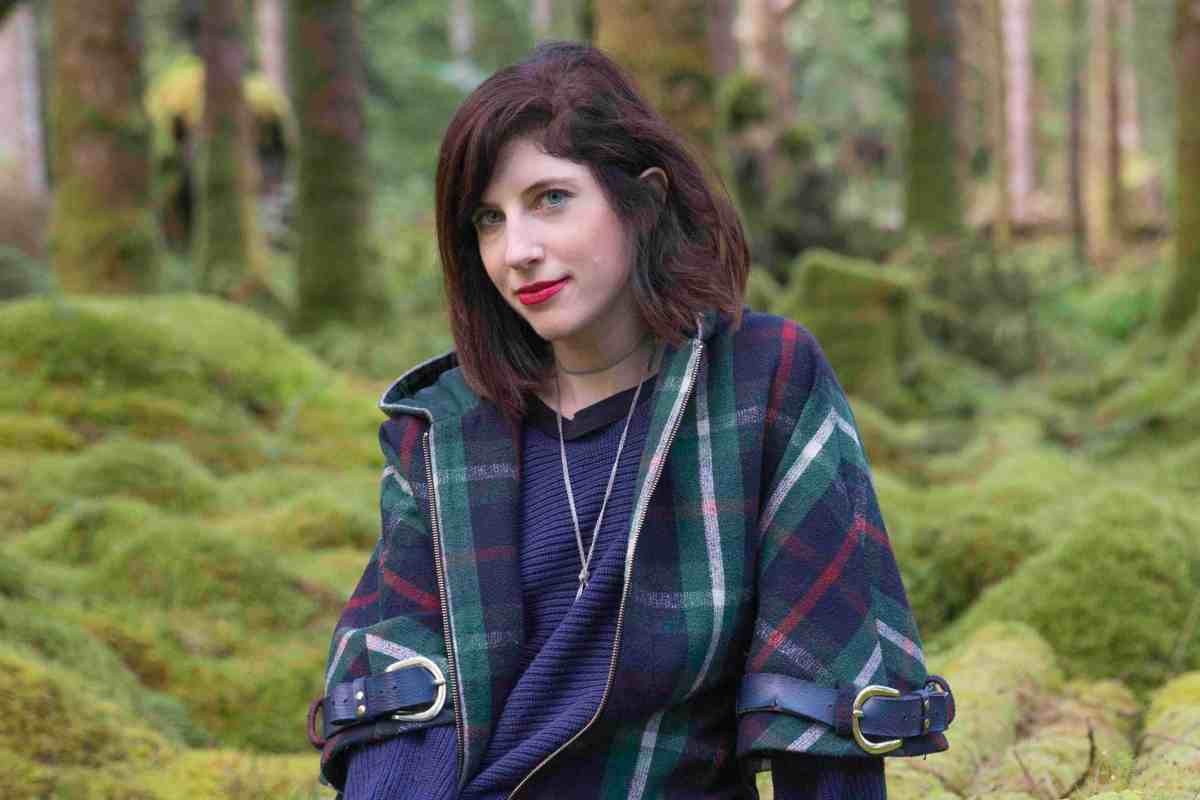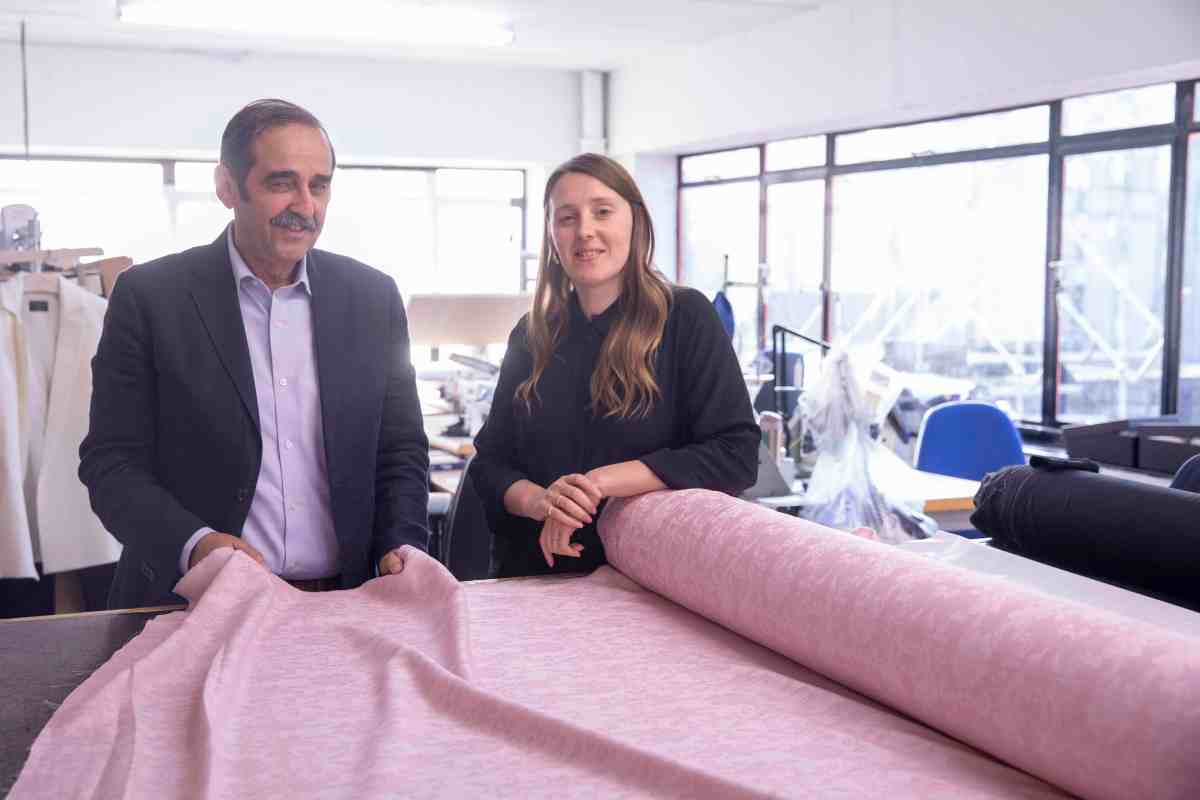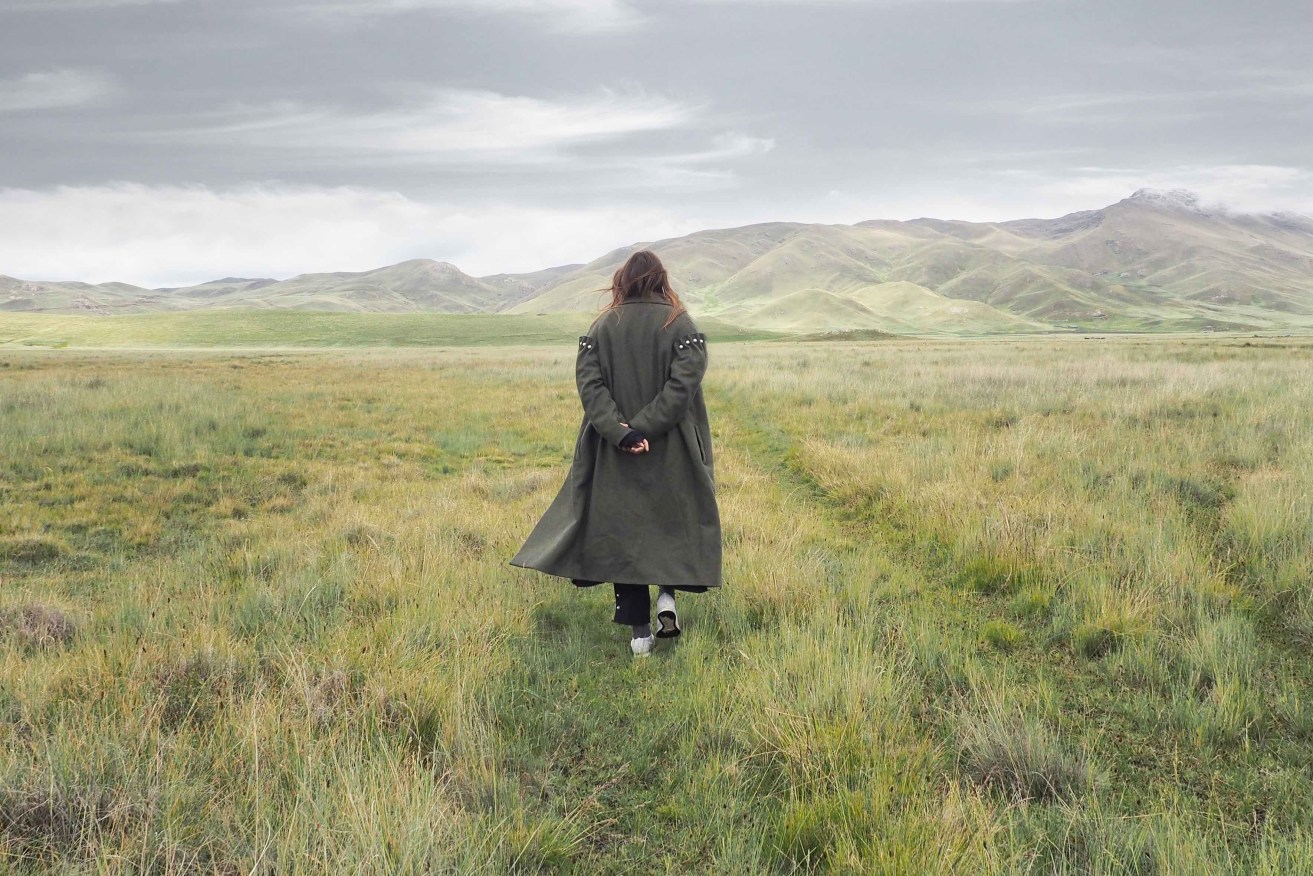When Adelaide Film Festival kicks off later this month, alongside the program of the world’s best cinema will be the announcement of the Change Award winner.
Established in 2020, the Change Award is for positive social or environmental impact, and cinema expressing new directions for humanity, as voted for by the audience via the AFF app.
One of the award contenders is Fashion Reimagined from EMMY-nominated Becky Hutner, a Toronto born filmmaker living in England.
The film is having a special pre-festival red-carpet screening on Sunday, October 9 in partnership with ADL Fashion Week. It will also be played at the Semaphore Odeon during AFF on Sunday October 23.
Hutner follows the UK’s 2017 Vogue Designer of the Year, Amy Powney, as she battles to deliver a completely sustainable and ethically-produced collection, from field to finished garments.
The pair met when Hutner was working for London media company, DUCK Productions, which specialises in creating short form video content for fashion brands.
Hutner was on her own sustainability path and was frustrated by an inability to do more, especially with regard to fashion’s environmental impact.
“I interviewed Amy at her house [for the award] and, after the interview, I asked her what was next in her career,” recalled Hutner.
“She told me she was about to go on this journey and it was the light bulb moment. I just knew that I needed to follow her story.
“I love the craftsmanship of fashion and the cultural value of fashion, but I had been wary of the actual industry and the impact of the industry for several years and was feeling quite uncomfortable working within it.

Becky Hutner, director of Fashion Reimagined
“My boss, Lindsay Lowe, became the producer. She was naturally trepidatious because this was her livelihood and these were her clients. So, she definitely had fears around taking this on, but did it anyway.
“Amazingly, in 2017, there wasn’t a lot of mainstream awareness around fashion’s environmental impact, even within the industry. But within a year that awareness had exploded.
“All of a sudden like there was a lot of pressure on the industry to at least be seen to be making a change. When we first pitched this film [we] had to do a lot of explaining to people, even in the industry.
“But within a year they got it and were quite excited. I mean, people like the British Fashion Council, which produces London Fashion Week and is DUCK’s main client, they were super excited about it and got behind us immediately. And these different organisations like editors from British Vogue, have seen it and absolutely love it.”
The film follows Powney and Chloe Marks, Mother of Pearl’s brand manager, as they try to trace and source ethically and sustainably produced cotton and woollen cloth, while racing to meet the collection deadline.
Their mission takes them to Uruguay, Peru, Austria and Turkey and gives the audience an eye-opening look into the environmental and social costs of garment manufacturing.

Mother of Pearl’s Amy Powney with Pedro Otegui
The film notes that five of the seven biggest cotton-producing countries are currently using child labour.
“We found that out firsthand, actually, when we went to Turkey,” said Hutner. “We had a guy there, who was going to show us an organic cotton farm and took us on a bus.
“We’re looking at our Google Maps, and we’re getting closer and closer to the Syrian border. Finally, very near the Syrian border, we stopped and got out and started walking through this field.
“To be very clear, this wasn’t a part of Mother of Pearl supply chain, this was just an organic field. And Chloe said ‘Is that a child?’
“We’ve landed in this supposedly organic cotton field, [but] it was a bunch of children picking the cotton.
“[Chloe] wouldn’t go any further. She started fighting with our guides, who only spoke Turkish, so that was interesting.
“We called someone from the certification body right then and there to ask them what was going on. And they kind of laughed and said, ‘Well…?’
“Chloe asked aren’t you supposed to be policing this? And they said, ‘Well, you see how difficult it is?’”
There are many moments in the film where it seems to be a fruitless exercise. Adding salt to the wound, the pandemic hit near the end of the shoot, threatening Powney’s company and, as Hutner noted while being interviewed, exacerbating the terrible treatment of workers in too many of the world’s garment factories.
However, the film also serves as a primer for other fashion labels, helping them on the path to sustainable and ethical fashion.
Hutner says the audience response has included tears.
“I’m surprised by how emotional audiences have been – in the Q&A’s, people are crying.
“People are very moved by Amy’s story, because she’s one of us, she’s very accessible. She’s not your typical fashion designer who grew up with money and and connections. She’s the outsider, the girl from the caravan who made it and she’s there to tell us how it really is.
“People relate strongly to Amy and her journey and I think that’s part of what makes them emotional.”
Hutner hopes the film will encourage transparency in the fashion industry, inspire audiences to take action, be more sustainable in their shopping habits – buying more thoughtfully, buying less and keeping garments in circulation for longer – and to agitate for better conditions for garment workers and stronger environmental controls.
“We all wear clothes. Hopefully, this film is making people reflect on their own choices and how they’re living their own lives. It is an emotional thing to think [how] you’ve participated and all the damage that’s been caused.”
Sunday’s screening of Fashion Reimagined will feature a post-screening Q&A with local designers Melanie Flintoft of Sunset Lover and Sophia McMahon of autark on the future of slow and ethical fashion design.
The other nominees for this year’s AFF Change Award are: the unconventional EO from veteran Polish master Jerzy Skolimowsky, in which we see the world through the eyes of a donkey; the winner of the 2022 Melbourne Film Festival Audience Award Greenhouse by Joost, which follows environmental campaigner Joost Bakker as he builds a self-sustaining home; Luku Ngarra, an unflinching, Indigenous-funded documentary on the history and culture of Arnhem Land leading up to the present day; and Into the Ice, a compelling enviro-doco turned action-adventure epic that tracks three fearless glaciologists as they measure the melting of the Greenland glacier.
In 2022, the Change Award will be presented by Zambrero.
Adelaide Film Festival tickets can be purchased on their app or website.






